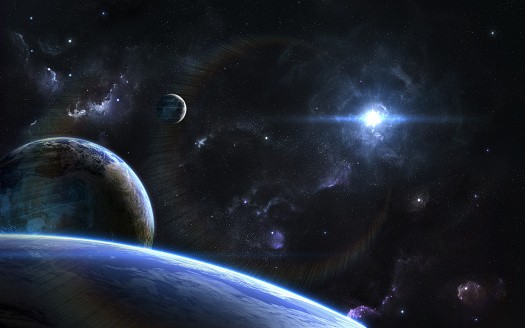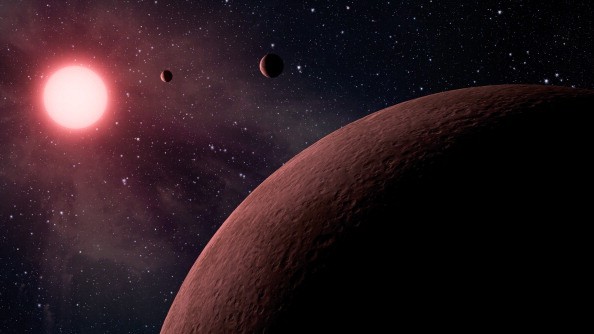Exoplanet hunters have discovered a new class of these planets, called "Hycean Worlds," which they believe could hold the highest potential for being habitable.

According to a report by EarthSky.org, this new exoplanet type features worlds covered with planet-wide oceans and hydrogen-rich atmospheres. They're water worlds with barely any landmass in them but have the same type of atmosphere as Earth's.
A team of researchers from the University of Cambridge made this announcement after publishing their findings in the Astrophysical Journal. In their study, the researchers claimed that Hycean worlds ("Hycean" being a portmanteau of hydrogen and ocean) is in some ways similar to Earth, but are often bigger with much thicker atmospheres.
A Hycean exoplanet is around 2.6 times Earth's diameter. Aside from that, they also concluded that this kind of planet will have temperatures as high as 200 degrees C (roughly 400 degrees F). A Hycean planet can be placed somewhere between Earth and a gas giant like Neptune with these characteristics.
Being water worlds, Hycean exoplanets hold an unusually high potential for life. Water is considered a critical ingredient for life, as per LiveScience. However, these exoplanets are classified into more categories, such as "dark" and "cold" Hycean worlds.
According to the study, the researchers managed to identify tidally locked "Dark Hycean" planets that allow habitable conditions on their permanent dark sides. Tidally locked means a planet doesn't spin on its axis. Thus, one side remains in perpetual night, and the other in a perpetual day. As for "Cold Hycean" worlds, they concluded that these planets receive very little (almost negligible levels) of radiation from their host stars.
This is one of the latest big discoveries in scientists' continuous hunt for exoplanets that can support life elsewhere in the universe.
Exoplanet Hunt: What's Even the Point?
For centuries, mankind has always wondered if we were alone in the universe. If so, then it means that life on Earth is more or less a cosmic accident. But if life does exist elsewhere in the universe, then it's going to drastically change what people know about the cosmos and our home planet in general.

Any discoveries pertaining to extraterrestrial life will finally answer the many questions about how life on Earth began. Understanding the process that made our planet habitable would also reveal more secrets about the universe's birth, which would usher in a scientific renaissance.
Right now, the likes of NASA are employing more advanced technologies, such as atomically accurate sensors, in the exoplanet hunt. So far, over 4,000 exoplanets have been discovered, according to NASA.
A Hycean exoplanet can be habitable, sure. But unlike the Earth, it's going to have some conditions. For one, its size alone means it's going to have a stronger gravitational pull on its surface. This means that there likely won't be any science of intelligent life but rather primitive, microbial ones. It might not be as impressive, but this still would be an insanely massive discovery.
This article is owned by Tech Times
Written by RJ Pierce
ⓒ 2025 TECHTIMES.com All rights reserved. Do not reproduce without permission.




